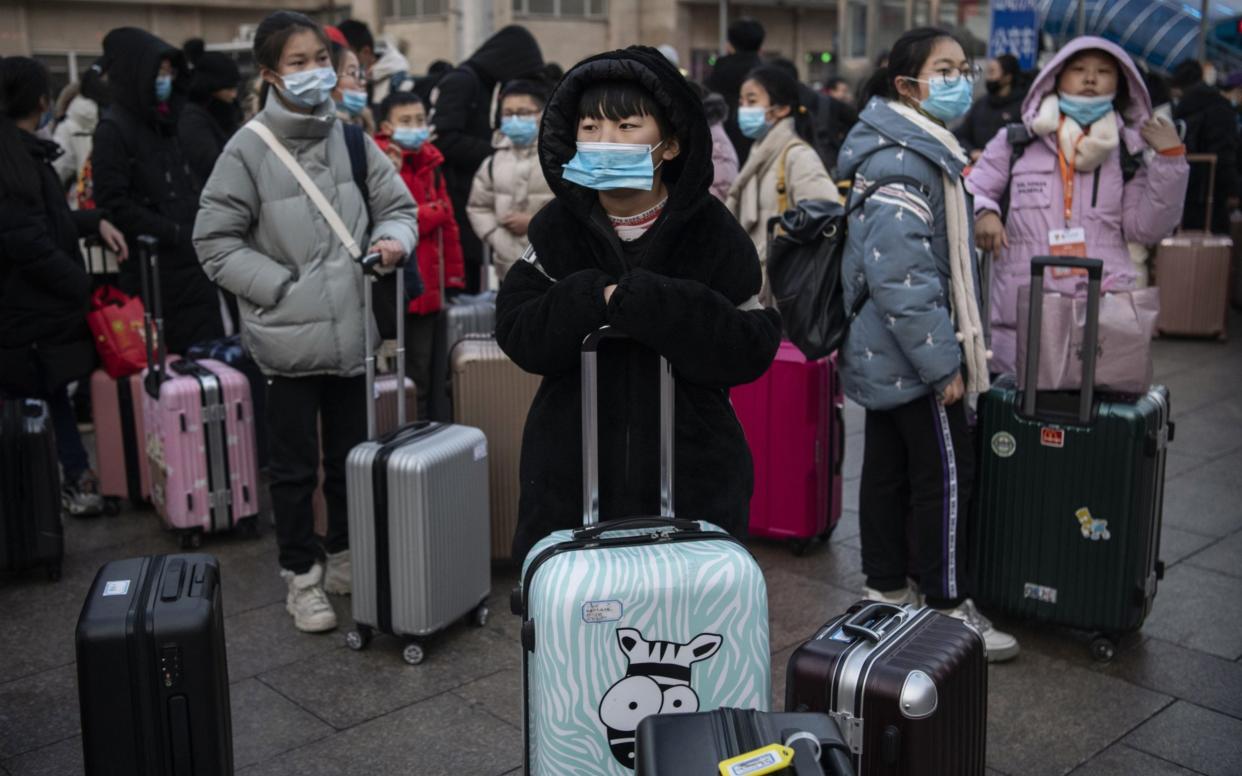Coronavirus outbreak in China rises to 440 cases with 9 deaths

China has confirmed 440 people are infected nationwide with a new coronavirus, with the number of deaths rising to nine, as the US reported its first confirmed case of the mystery disease.
The latest count was current as of midnight on Tuesday, with all deaths in Hubei province, where the first illnesses were reported in December, said Li Bin, deputy director of China’s national health commission.
The outbreak is believed to have originated in Wuhan, the provincial capital of Hubei, and causes fever and breathing difficulties. Health officials have confirmed human-to-human transmission, and cases have spread to other Chinese cities and abroad.
China's National Health Commission admitted that the country was now at the "most critical stage" of control and warned that the virus could mutate and spread further.
"Though the transmission route of the virus is yet to be fully understood, there is a possibility of virus mutation and a risk of further spread of the epidemic," Li Bin said on Wednesday.
An emergency meeting will be convened by the World Health Organization today in Geneva to determine whether the coronavirus outbreak constitutes a global health emergency.
The first case outside China was confirmed on Jan 13 in Thailand. Since then, three cases total have been confirmed in the southeast Asian country, as well as one each in the US, South Korea, Japan and Taiwan.
Many countries in Asia and as far away as the US have stepped up screening measures at airports for incoming travellers in efforts to stem the outbreak. North Korea has also closed its borders to all tourists.

Public health measures in China have also been put in place, including screening outbound passengers in Wuhan, in efforts to prevent a repeat of the SARS outbreak, which originated in China and spread, killing nearly 800 people in 2002 and 2003.
Wuhan is preparing 2,000 more hospital beds as it works to mitigate the impact, and has set up a prevention and control centre. Chinese airlines are also offering refunds to passengers with fevers banned from travelling out of the city.
Wang Guangfa, the Chinese physician who told the public Jan 10 that the outbreak was under control, has been infected himself, though didn’t provide details on how the transmission may have occurred.

Mr Wang was part of a team of experts that visited Wuhan earlier this month, and heads the department of pulmonary medicine at Beijing’s Peking University First Hospital.
British health officials said as of Jan 20 that the risk remained low to the UK, though the situation remained under constant review. A UK government advisory also reminded the public to practice good personal and public hygiene if travelling to Wuhan, and to avoid visiting animal or bird markets in the city.
“Individuals should seek medical attention if they develop respiratory symptoms within 14 days of visiting Wuhan, either in China or on their return to the UK,” said Dr Nick Phin, Deputy Director, National Infection Service, Public Health England.
Protect yourself and your family by learning more about Global Health Security


